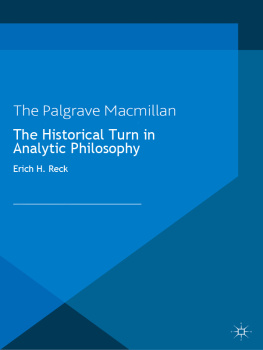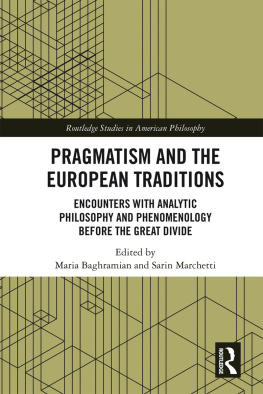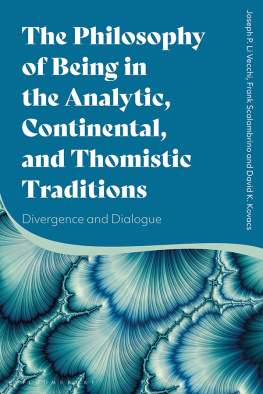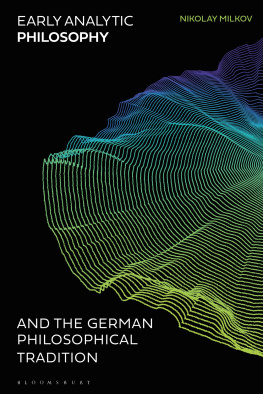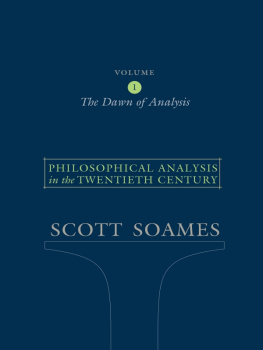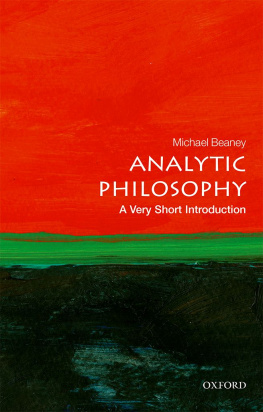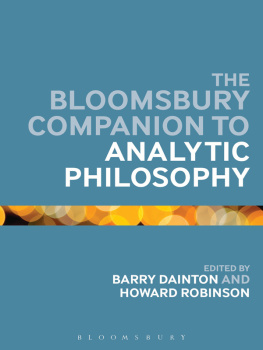The Oxford Handbook of
The History of Analytic Philosophy
Michael Beaney

- Great Clarendon Street, Oxford, OX2 6DP,
- United Kingdom
- Oxford University Press is a department of the University of Oxford.
- It furthers the Universitys objective of excellence in research, scholarship,
- and education by publishing worldwide. Oxford is a registered trade mark of
- Oxford University Press in the UK and in certain other countries
- the several contributors 2013
- The moral rights of the authors have been asserted
- First Edition published in 2013
- All rights reserved. No part of this publication may be reproduced, stored in
- a retrieval system, or transmitted, in any form or by any means, without the
- prior permission in writing of Oxford University Press, or as expressly permitted
- by law, by licence or under terms agreed with the appropriate reprographics
- rights organization. Enquiries concerning reproduction outside the scope of the
- above should be sent to the Rights Department, Oxford University Press, at the
- address above
- You must not circulate this work in any other form
- and you must impose this same condition on any acquirer
- British Library Cataloguing in Publication Data
- Data available
- Printed and bound in Great Britain by
- CPI Group (UK) Ltd, Croydon, CR0 4YY
- Links to third party websites are provided by Oxford in good faith and
- for information only. Oxford disclaims any responsibility for the materials
- contained in any third party website referenced in this work.
Preface
In the preface to his pioneering book on Frege, published in 1973, Michael Dummett remarked that a book without a preface is like arriving at someones house for dinner and being shown straight to the table. There is a huge feast on offer in the present volume, and even though the starters may be more than enough to whet the appetite, an amuse bouche should be offered first in the reception lounge. Given that one of the aims of this volume is to elucidate the historical origins of analytic philosophy, which is now the dominant tradition in the philosophical world, it is only right that I say something here about the origins of this book and the form it came to take. Menus, too, have a history.
The publication of this book is the clearest sign yet that history of analytic philosophy is now recognized as a subfield of philosophy in its own right. As Peter Momtchiloff emailed me back in September 2006, in inviting me to edit this volume in the Oxford Handbook series, I believe that now is an ideal time for this, a collective study of a subject that is really taking off. Over the weeks that followed I had extensive discussion with Peter and several colleagues and friends, some of whom have contributed to this Handbook, about the form the Handbook should take and the possible chapters and authors. The proposal drawn up went to four advisers, and valuable comments and suggestions were received. I then began the process of inviting contributors, and the negotiations and correspondence we engaged in helped shape other chapters and fed back into the discussions that continued throughout the editorial project. Several contributors kept in touch with others writing on related topics, and drafts were circulated and comments passed. It was an exciting period, as I became more aware myself of just what interesting stories there were to tell and of what issues became important in the analytic tradition.
Right from the beginning, the Handbook was intended as more than a mere survey of developments in analytic philosophy, and I encouraged contributors to take their own line through the material they covered and to reflect on what doing history of analytic philosophy involved. This is not a history of analytic philosophy by many hands, in other words, though much light has certainly been shed on key chapters in that history. Rather, it is a genuinehandbook, representing and bringing together the best work in the area over recent years, making room for a variety of voices, and opening up new perspectives and lines of investigation, with the aim of enthusing, informing, and orienting all those with an interest in the history of analytic philosophy.
Inevitably, some chapters turned out to be rather different than I had anticipated, and the organization of the volume altered accordingly. Some people who had originally agreed to contribute found that they could not, after all, deliver, whether because of illness, other commitments, or the realization (so they said) that they had nothing new to say, and two people disappeared into a black hole of electronic silence. This was when the most difficult decisions had to be taken: whether to recommission, to find ways in which the resultant gaps might be filled in other chapters, or simply to drop the topic. As more and more chapters came in, the options for recommissioning reduced, as the obligations to those who had already sent in their chapters built up. I am especially grateful to several authors for agreeing to contribute at a later stage in the project and to a much tighter schedule. In the end, with much regret, I did have to call it a day on a few of the originally planned contributions. Perhaps I should have cracked the whip earlier, but I hope I achieved the right balance between inclusion and delay.
I was often conscious of the paradox of editingor more precisely, of the paradox that arises from setting deadlines to contributors. Contributors would want to know when the final (or final final) deadline was, understanding by that the date when all the contributions bar their own would have been sent in. No one actually said Let me know when youve received the last chapter but mine, and I promise to send you mine within two weeks from then, though an editor of another Oxford Handbook told me that this had indeed been said to them, and I am sure that something like this thought crossed the minds of one or two of the present contributors (and it does not help when they are in contact with one another!). Although I will never edit something as large as this ever again (I say to myself with some determination), I may yet do some further editing, so I had best not own up in public to the strategy I adopted for resolving the paradox, or the more ruthless strategy that I sometimes wondered whether I should have followed.
All these facts are salutary reminders of the contingencies that affect the publication of all books, which the historian of analytic philosophy should bear in mind just like every other historian. Looking back at the original proposal submitted to Oxford University Press, I am aware of how much has changed. Excellent papers have been added that were not envisaged, but equally, some chapters originally planned have had to be dropped, for one reason or another. I am extremely happy with the resultant set of contributions, although I would have recommissioned chapters on one or two topics had time not been running out (and the constraints of space allowed). The Handbook will be made available online, however, and I have been told that further chapters can be added for the online edition. I also look forward to updating the chronology and bibliography as a continual resource for future work in history of analytic philosophy. I would be delighted to receive suggestions for additions to the online edition.


